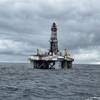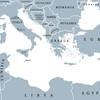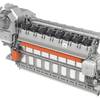New cooperation provides manufacturers of ballast water management systems (BWMS) with an opportunity to obtain German and U.S. type approvals from a single test
NSF International, the first Independent Laboratory (IL) designated by the United States Coast Guard (USCG) to evaluate and test ballast water management systems (BWMS) for U.S. type approval, can now provide BWMS testing to Germany’s Federal Maritime and Hydrographic Agency (Bundesamt für Seeschifffahrt und Hydrographie (BSH)) requirements, which are based on International Maritime Organization (IMO) Guidelines. BWMS manufacturers may now submit for required type approvals to NSF International IL and in parallel to BSH using the same set of test data. This will reduce test costs and approval time and allow ships to navigate to U.S. and international shipping destinations.
USCG type approval of onboard BWMS is required for vessels entering and discharging treated ballast water in U.S waters to prevent the spread of non-native aquatic species in lakes, rivers and coastal waters. Additionally, the national type approvals for Germany offered through BSH meet the IMO requirements for ships throughout the rest of the world.
Tom Bruursema, General Manager of NSF International’s Sustainability Division, which manages the NSF International IL, said, “This agreement with Germany’s BSH provides manufacturers a more economical and streamlined process for achieving two key BWMS type approvals in the industry. The BSH is key to making our program even more advantageous to ballast water management systems manufacturers. The combined capabilities of our IL partners are without parallel in the maritime testing and certification field.”
Monika Breuch-Moritz, President of the Federal Maritime and Hydrographic Agency, said, “The NSF International IL and partners have the technical and scientific capabilities necessary to provide high quality evaluations of ballast water management systems to both U.S. and international requirements, which will provide additional benefits to manufacturers and eventually ship owners who need approved systems in both U.S. and international waters.”











